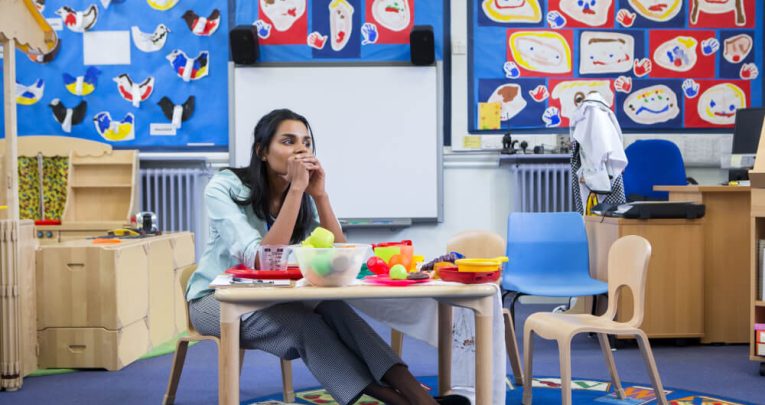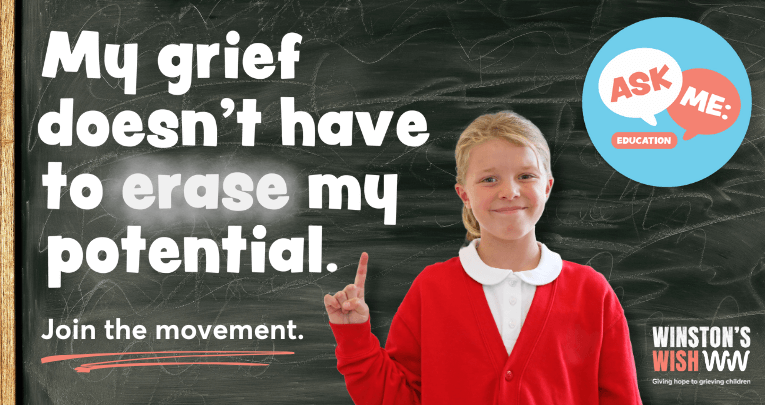Thirty-four per cent of education professionals have experienced a mental health issue in the past academic year – statistically, that’s over a third of the team that you work with.
It is interesting to notice that this is the same mental health statistic as our children and young people.
Schools are well geared towards filling their toolboxes with interventions to support the emotional wellbeing of pupils, but are we as successful with resources to support staff wellbeing?
Over the last year, especially during the pandemic, Drawing and Talking noticed an increase in requests for support in delivering intervention remotely to pupils. As we began to expand our coaching and supervision platform to meet this need, it also became evident that the pressure, anxiety and stress of educators around the country had to be addressed.
We noticed that educators and support staff were either at home isolating as vulnerable adults, or feeling the pressures themselves from the increased workload, as more families move into the vulnerable category.

The obvious lack of easy-to-access mental health support for staff has become a growing concern for us and is now a priority.
Just like in a family unit, if parents are suffering emotionally, their work life, mental health, happiness and ability to provide a consistent nurturing environment for their children is adversely impacted.
Why is it that we are unwilling to admit this impact could also be transferred to the classroom and school environment where children spend most of their time?
As well as being teachers, contrary to many students’ beliefs, we are human beings too, and we have lives beyond the classroom.
We are parents, carers, divorcees, have suffered bereavements, are victims of domestic abuse, have disabilities, have recovered from or been diagnosed with cancer or other illnesses, have suffered as children ourselves.
We too deserve to be nurtured and given time to process the feelings that we often conceal in our professional environment.
If staff are not flourishing emotionally, it will unintentionally cascade down to the children in our care.
We need to ensure support systems are available and easily accessible.
Nice thought – but I don’t have the budget!

The UK is undoubtedly entering into a financial crisis. For those of us who have been around long enough we know the impact that has on funding, or rather lack thereof.
Why is it that the Government, who continue to make increasing and often unrealistic or manageable demands on the education sector, are unwilling to invest additional money in supporting the emotional wellbeing of the very body that is responsible for the wellbeing of our children?
As a school, are we meeting the emotional and social needs of the whole community?
Drawing and Talking, along with other organisations, are inviting schools to ensure your staff have access to a mental health policy that is proactive and at the forefront of school life.
The Anna Freud Centre has a dedicated handbook with a practical guide to supporting the development of placing mental health at the top of your agenda.
What interventions or resources are already available and transferable?

Can any of the interventions and resources used currently with pupils be adapted by staff for adult support? Drawing and Talking therapy is one of these approaches.
Did you even realise that Drawing and Talking Therapy is accessed by hundreds of adults each week?
Having trained over 40,000 professionals from various organisations, many of them schools, Drawing and Talking practitioners are a valuable resource to be able to utilise.
The technique is different from many other therapeutic approaches that tend to focus on solutions or cognitive and behavioural approaches.
Drawing and Talking focuses solely on the processing of internal feelings that can often not be put into words.
If not your school practitioner, perhaps staff might like to find someone independent: drawingandtalking.com/find-a-practitioner.
Other useful questions to ask
- Who has the skills?
- Is there a staff member that is naturally the person that others tend to turn to automatically?
- How can they be professionally developed to become the Staff Mental Health Lead?
- How are you measuring staff wellbeing and the success of interventions?
- How safe do staff feel about reporting if they are suffering emotionally and who do they report to?
This past year has been one of the most testing times in the history of education.
As we begin to focus on how we integrate children back into to classroom successfully, we must first ensure that staff are emotional well and prepared to carry the increase in mental health issues that will be displayed in the aftermath of the current trauma we have all been through.
Staff mental health must become a priority in all educational settings, and it is time we put value on our own emotional wellbeing.
For more information about how Drawing and Talking Therapy can support a whole-school approach or to view our training dates, please visit drawingandtalking.com for training dates or email info@drawingandtalking.com.











